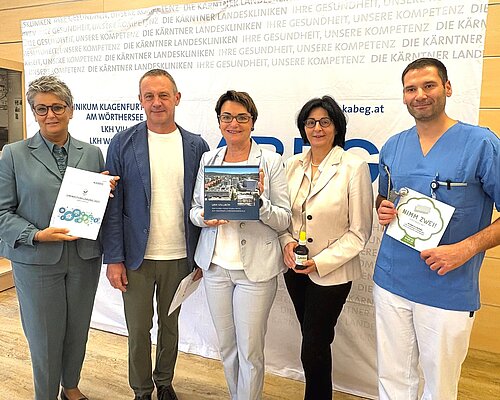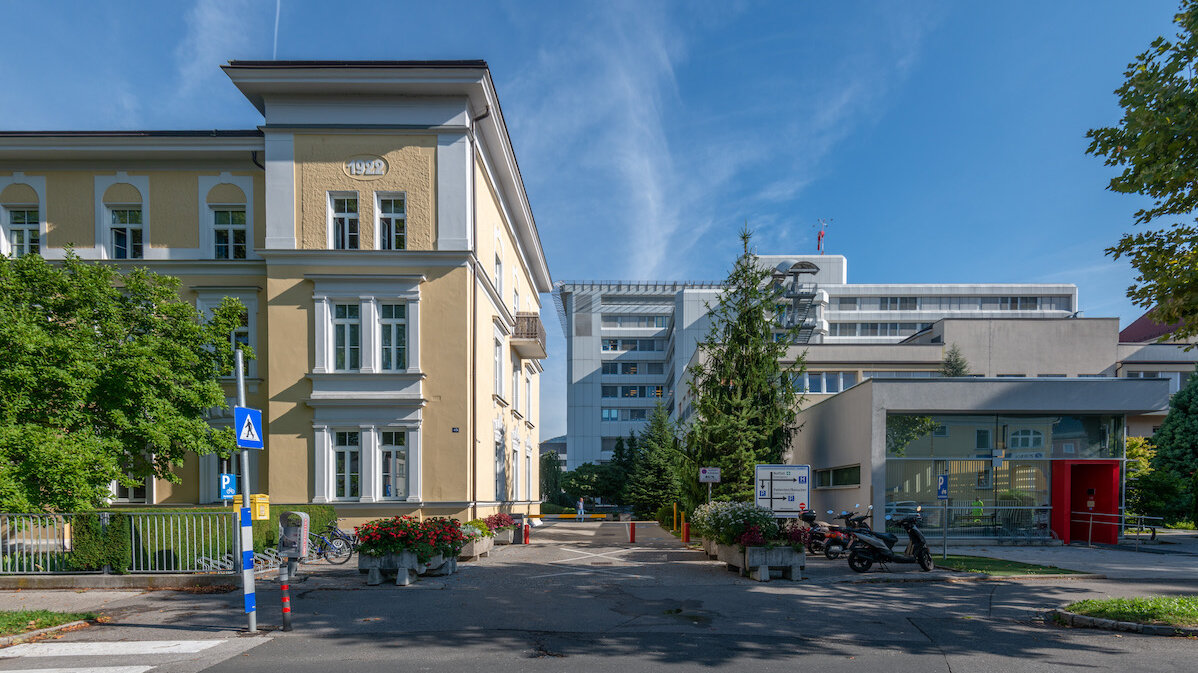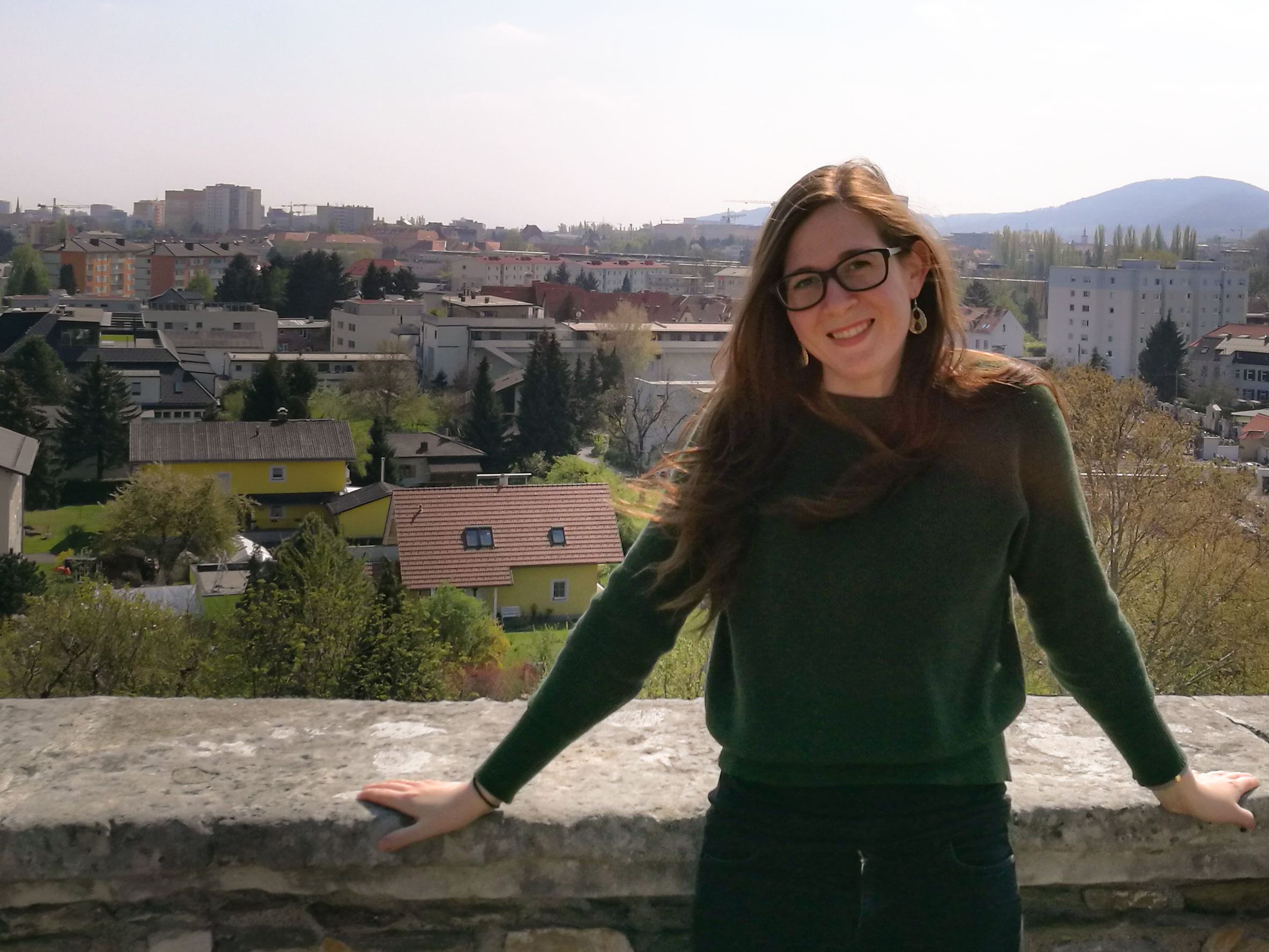LKH VILLACH: CLIMATE PIONEER IN THE HEALTHCARE SECTOR

Climate change affects not only the environment but also our health, and consequently, the healthcare system. During hot summers, hospitals see a significant increase in patients with heat-related ailments. At the same time, clinics contribute substantially to CO₂ emissions due to high energy consumption and waste generation.
The State Hospitals Operating Company KABEG, which operate five state hospitals (LKH) in Carinthia, recognized this problem early and has been implementing targeted measures for years to save CO₂, energy, and water. LKH Villach, in particular, demonstrates how sustainability is integrated into daily hospital operations – and how climate protection and patient care can successfully go hand in hand.
PIONEERING ROLE FOR OVER A DECADE
KABEG, as the hospital network for all of Carinthia, assumed a pioneering role early on. As early as 2011, the network became the first in Austria to be certified under the Eco-Management and Audit Scheme EMAS, which guarantees concrete measures and measurable results.
Since 2010, CO₂ emissions have been reduced by more than 50%, electricity consumption by 12.3%, and water consumption by 43.5%. Energy optimizations alone save KABEG around €400,000 per year. In addition, the hospital’s solar power production has more than doubled since 2010.
GREEN TEAMS: EVERYONE PULLING TOGETHER
A central part of the sustainability strategy is the so-called Green Teams. Staff from nursing, medical, and administrative departments contribute practical ideas to reduce the hospital’s ecological footprint. These include recycling anesthetic gases, switching to sustainable materials, chemical-free cleaning, plant-based nutrition, and measures to mitigate heat stress in daily ward operations.
What started as a small pilot project is now firmly embedded in daily hospital life. Today, each location has five Green Teams, all relying on active participation from every professional group – the very first was founded at LKH Villach.

SUSTAINABILITY IN EVERY AREA
Sustainability at LKH Villach is implemented on many levels. Sustainable solutions are now developed across twelve different thematic areas – from waste reduction and energy efficiency to climate-friendly nutrition. At the Interdisciplinary Day Clinic, which serves as a green pilot station, new processes and measures are initially tested on a small scale before being rolled out in regular operations.
Targeted optimizations, such as in operating room ventilation, have already led to significant savings – the amount of electricity saved corresponds to the annual consumption of around 35 single-family homes.
Hospital catering also follows a sustainable approach: the Planetary Health Diet emphasizes predominantly plant-based meals with moderate consumption of meat and dairy products. This not only promotes health but also reduces the ecological footprint.
Environmental awareness among staff and visitors is also strengthened in everyday routines. Small reminders like “lights off” or “take two” on towel dispensers encourage resource-conscious behavior. Explants are recycled and returned to the raw material cycle, printer paper is saved, and medical products are checked for sustainability to ensure targeted use.
The successes achieved are also shared with around 270 other hospitals in Austria. At the sponsors’ conference last November, the savings potentials achieved so far were presented to the boards of other clinics.
VILLACH AS A SUSTAINABLE HEALTH CENTER
Collaboration with the Austrian Association of Green Hospitals (ÖVGK), the Climate Alliance, schools, universities, and the City of Villach has created a network that drives sustainable innovation. An ongoing flagship project is the new “Nikolai Quarter” climate and health district, developed in close cooperation with the City of Villach as a place for intergenerational, healthy working and living.
The measures at LKH Villach demonstrate that climate protection and healthcare are not mutually exclusive. Resource conservation, energy efficiency, and sustainable nutrition not only improve the environmental footprint but also strengthen patient care security and resilience. Villach thus positions itself as a pioneer in sustainable hospitals and shows how the balance between health and climate protection can be successfully achieved.
